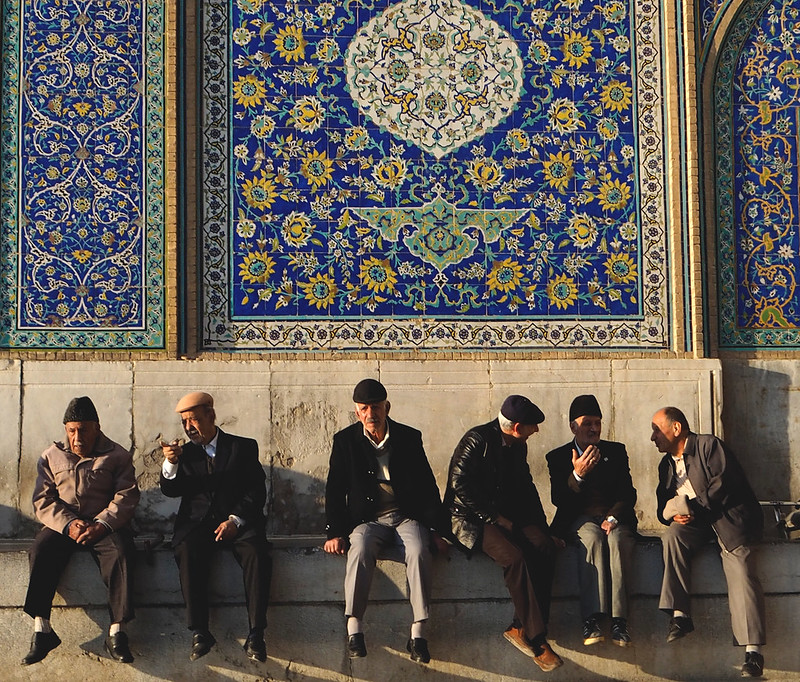4.4.8 Beyond the Text: Between Islam and Feminism

Men waiting outside the Sheikh Lotfollah women’s mosque in Isfahan, Iran. Photo Credit: Stefanie Eisenschenk, 2016. CC BY-ND 2.0.
In this contribution to the Journal of Feminist Studies of Religion Roundtable on “Feminism and Islam,” Fatima Seedat pushes back against formulations of “Islamic feminism” that portray “observant Muslims” as separate from “feminists.” Seedat, a lecturer of Islamic law and gender studies at the University of Cape Town, instead argues that feminism and Muslim gender equality work are intellectual paradigms that tentatively converse. Indeed, feminism’s emphasis on bodily and emotional experience as valid sources of knowledge are echoed in Muslim gender equality work as the “authority of experience” and “tafsir of praxis.” She suggests that Muslim equality work can move “beyond the text” and apply a “discursive approach” which offers a path, but not a destination, for renewed understandings of sexual difference oriented to justice.
Guiding Questions:
- What does Seedat mean when she says, “feminist tafsir privileges experience as a means of ‘imagining justice’ over texts that produce gendered injustice” (p.140-1)? Recall learning material 4.4.5 on Peaceful Families. What might “privileging experience” mean for verse 4.34 and fiqh rulings on women’s obedience in the context of intra familial violence?
- How can embodied Muslim experience and engagement with the Qur’an work in concert to “imagine justice” in the Imrana case presented by Professor Ebrahim Moosa in learning material 1.4.5?
If the PDF does not appear below, you can find it here.
Note: This article is reproduced with permission from Indiana University Press. You can find the full roundtable here: https://www.jstor.org/stable/10.2979/jfemistudreli.32.issue-2.


